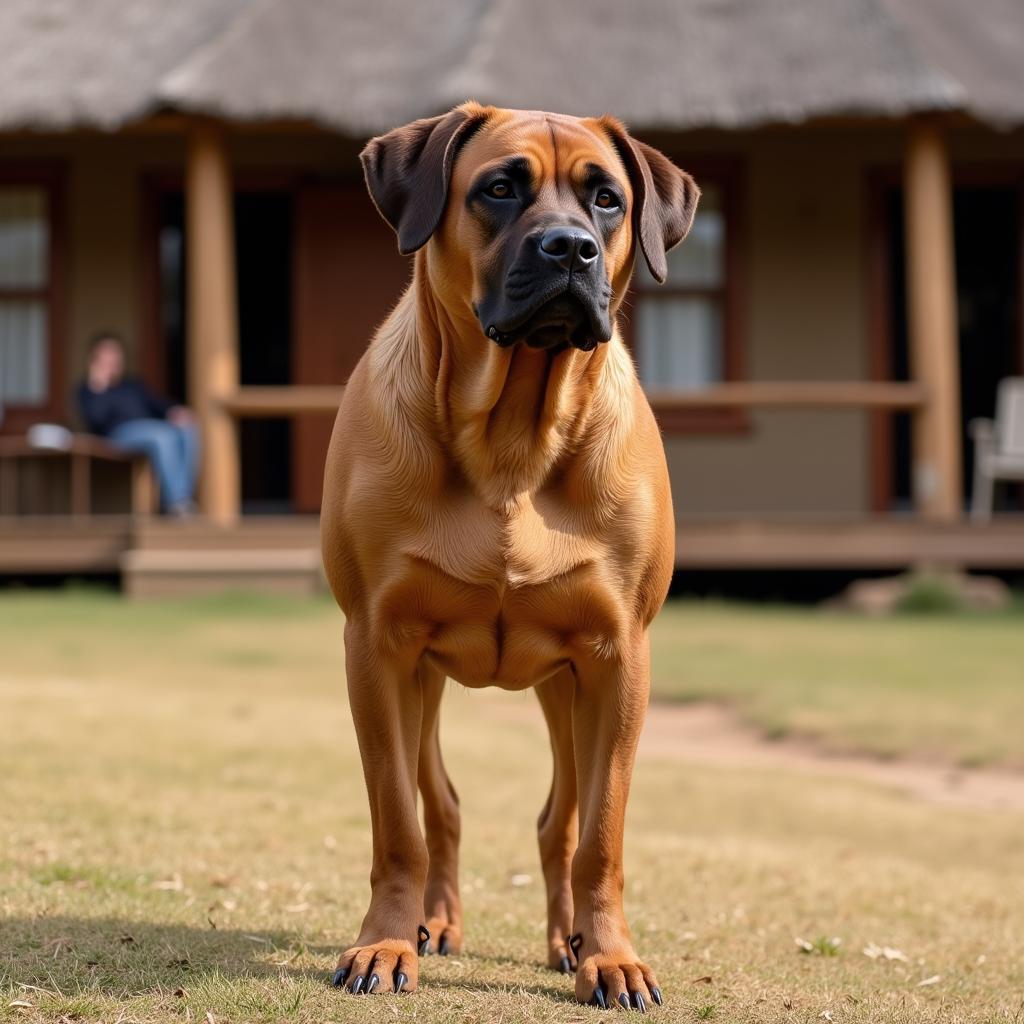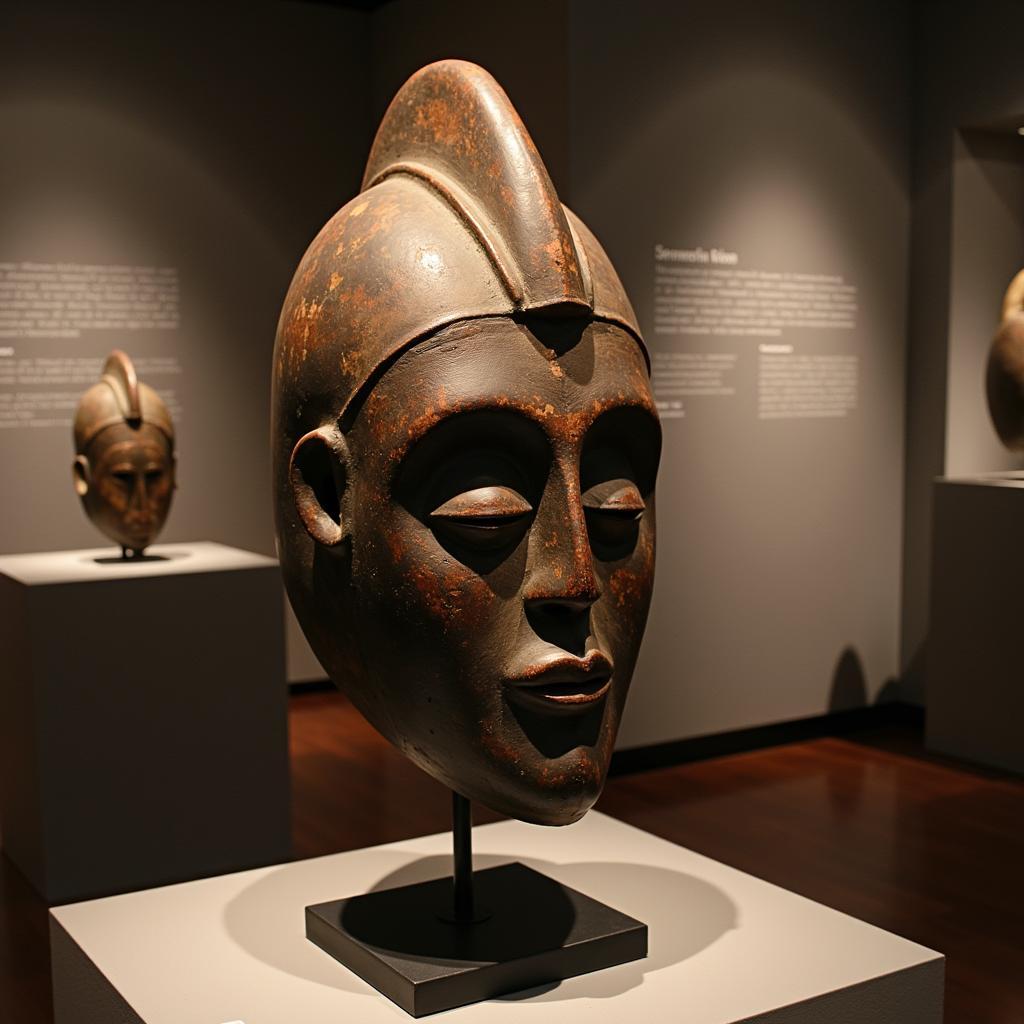Unveiling the History and Legacy of the African Boer Farm
The term “African Boer Farm” typically refers to farms in Southern Africa that specialize in breeding Boer goats, a breed that originated in South Africa and is renowned for its meat production. While the phrase might seem straightforward, it unveils a complex history intertwined with colonialism, agriculture, and the development of a unique livestock breed.
The Origins of the Boer Goat and its Farm Landscape
The Boer goat itself emerged in the early 20th century in South Africa. While its exact ancestry remains debated, it’s believed to be a result of crossbreeding indigenous African goats with European and possibly Indian breeds brought by settlers. The name “Boer,” meaning “farmer” in Afrikaans, reflects the Dutch heritage of many early settlers in South Africa. These farmers sought to develop a hardy, fast-growing goat breed well-suited to the region’s climate and terrain.
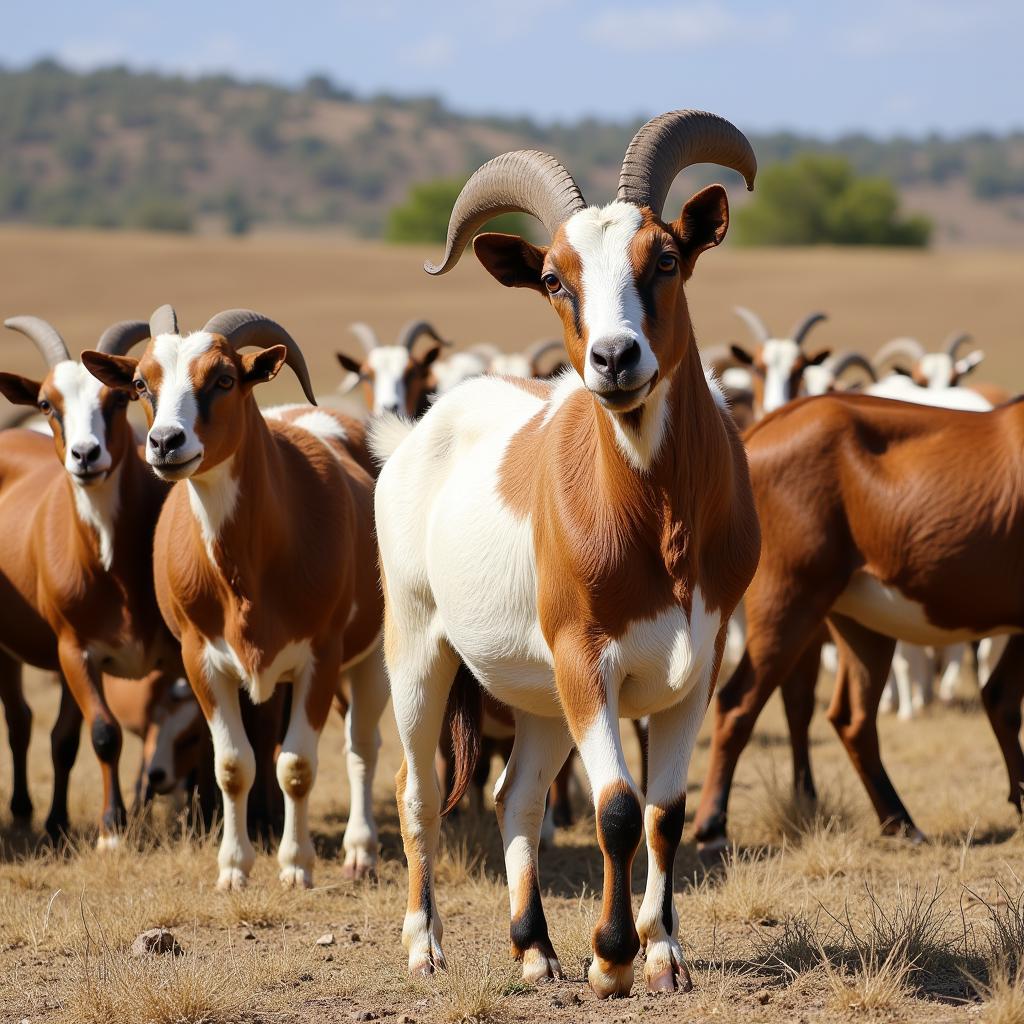 Boer goats grazing on a South African farm
Boer goats grazing on a South African farm
Early Boer farms were often large-scale operations, reflecting the colonial land ownership patterns prevalent in South Africa at the time. These farms played a significant role in supplying meat not only for local consumption but also for export. The Boer goat’s rapid growth rate and adaptability made it a profitable venture.
The Evolution of Boer Farms in the 20th Century
Throughout the 20th century, the Boer goat’s popularity as a meat breed continued to rise. African Boer goat farm expanded beyond South Africa’s borders, with the breed being introduced to other countries in Africa and eventually reaching various parts of the world, including North America, Australia, and Europe.
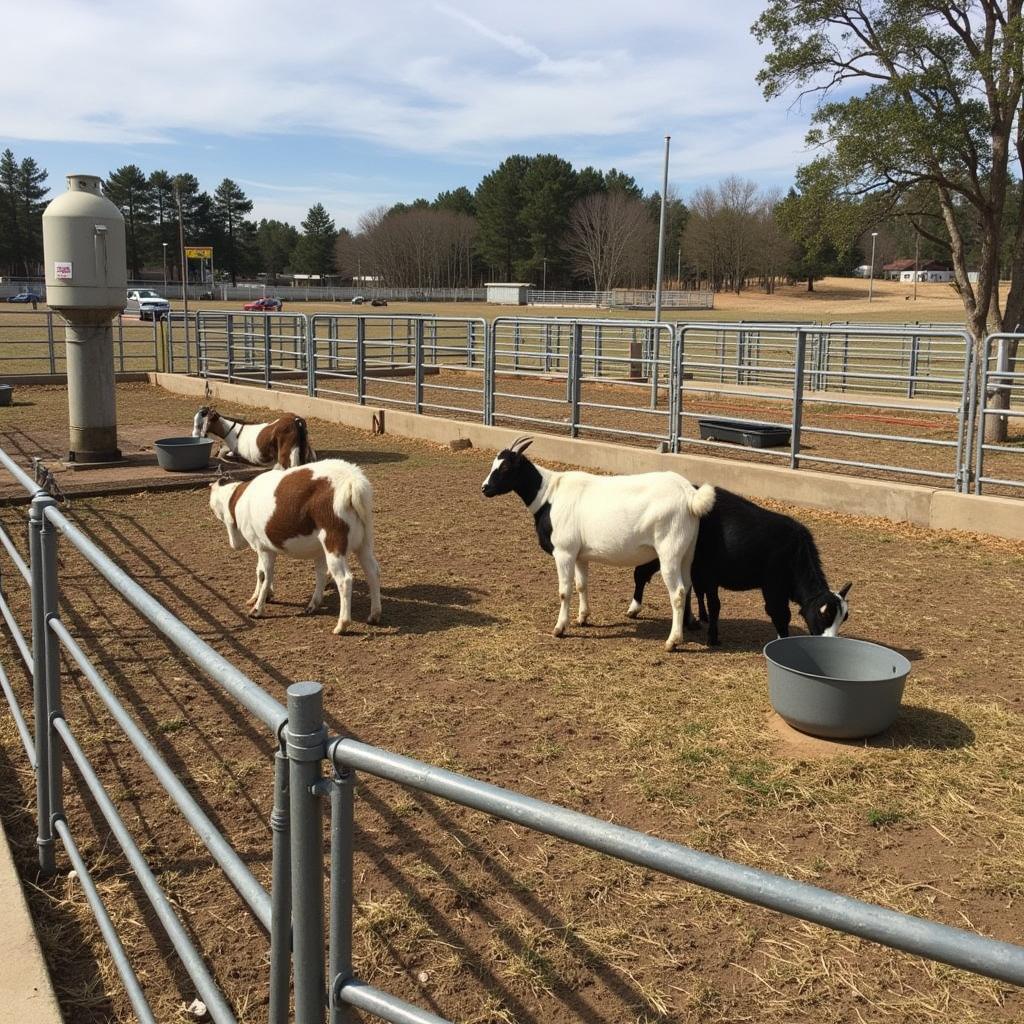 Modern Boer goat farm with infrastructure
Modern Boer goat farm with infrastructure
As the breed gained international recognition, so did the concept of the “African Boer farm.” However, the model began to diversify. While large-scale operations still exist, smaller-scale Boer goat farms, often run by indigenous communities or individuals, have become increasingly common.
Boer Goat Farming Today: A Global Phenomenon
The 21st century has seen a surge in demand for goat meat, driven by factors such as population growth, urbanization, and evolving dietary preferences. Boer goats, with their lean meat and reputation for quality, have benefitted from this trend.
African Boer goat farm in India are a testament to the breed’s global reach. The goats have been successfully integrated into various farming systems, from intensive operations to more integrated crop-livestock models. This adaptability has solidified the Boer goat’s place in the global meat market.
“The global success of the Boer goat speaks volumes about the breed’s resilience and the hard work of farmers across generations,” notes Dr. Thabo Moloi, a livestock specialist with decades of experience in Southern Africa. “From its humble beginnings on South African farms, the Boer goat has become a global commodity.”
Challenges and Opportunities for Boer Farms in Africa
Despite their successes, African Boer male goat farms, particularly those in Africa, face ongoing challenges. Climate change poses a significant threat, with increasingly frequent droughts impacting grazing lands and water availability. Market volatility and access to international markets also present hurdles.
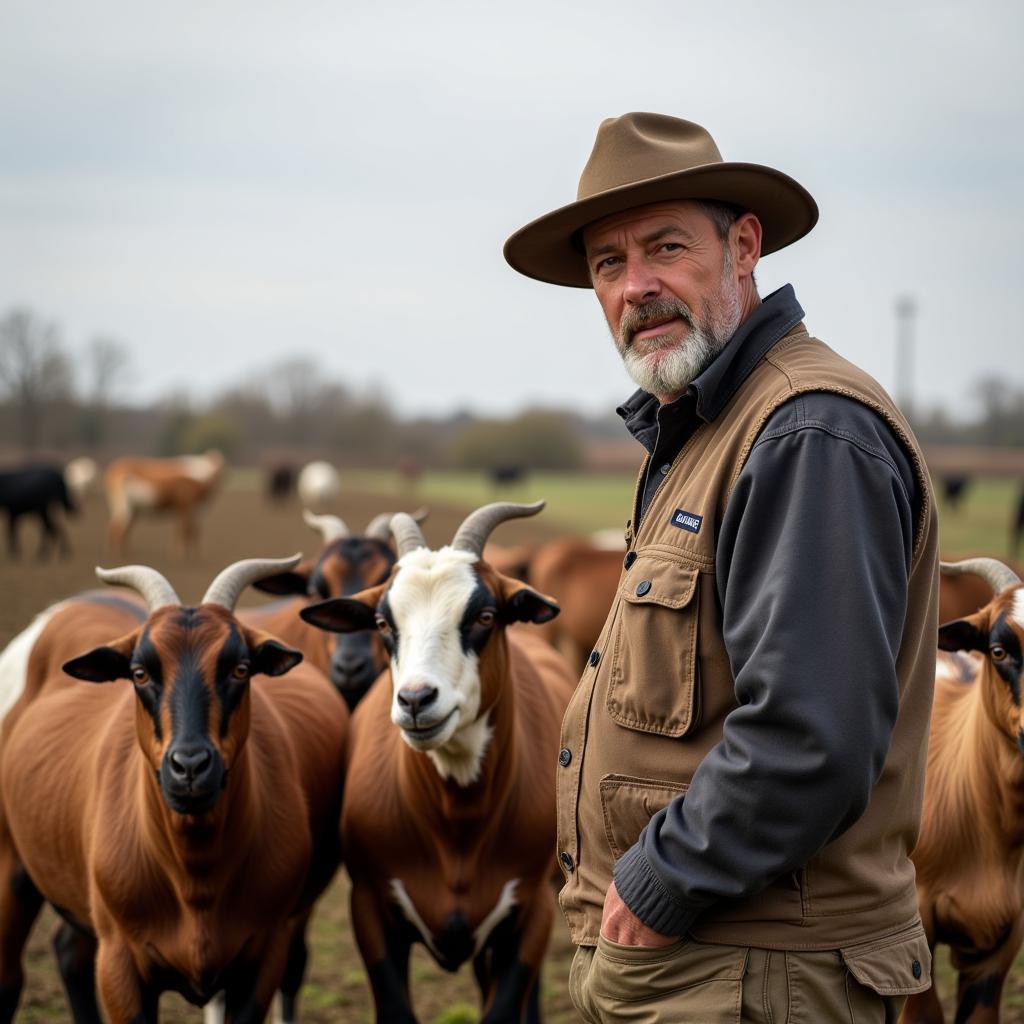 Boer goat farmer tending to his herd
Boer goat farmer tending to his herd
However, opportunities for growth and innovation abound. Investment in sustainable farming practices, such as rotational grazing and water harvesting, can mitigate the impacts of climate change. Strengthening local and regional value chains can enhance food security while empowering local communities. Additionally, exploring niche markets for Boer goat products, such as dairy and fiber, can create new revenue streams.
Looking Ahead: Sustainability and Ethical Considerations
As with all forms of agriculture, ethical considerations are paramount in Boer goat farming. Animal welfare standards must be upheld, ensuring humane treatment throughout the animals’ lifecycle. Sustainable land management practices are crucial to minimize environmental impact and preserve biodiversity.
Moreover, addressing the legacy of colonialism in the context of land ownership and access remains vital. Supporting equitable land distribution and providing resources and training to small-scale farmers, particularly those from historically marginalized communities, is essential for building a more just and sustainable agricultural future.
Conclusion: The African Boer Farm – A Story of Adaptation and Resilience
The story of the African Boer goat market in India is one of adaptation, resilience, and the enduring legacy of human interaction with the natural world. From its origins in the South African landscape to its global presence, the Boer goat exemplifies how a livestock breed can transcend geographical boundaries and become a source of livelihood for people worldwide. As we look to the future, embracing sustainable and ethical farming practices will be key to ensuring the continued success of Boer goat farming and its contribution to global food security.
FAQs about African Boer Goat Farms
1. What are the main advantages of raising Boer goats?
Boer goats are known for their fast growth rate, excellent meat quality, and adaptability to various climates. They are also relatively low-maintenance livestock, making them an attractive option for farmers.
2. What is the average lifespan of a Boer goat?
The average lifespan of a Boer goat is around 8-10 years. However, with proper care and management, some individuals can live longer.
3. Are Boer goats only raised for meat?
While Boer goats are primarily raised for their meat, they can also be a source of milk, which is used to make cheese and other dairy products. Their hides can also be used for leather.
4. What are some challenges faced by Boer goat farmers in Africa?
Climate change, access to markets, and limited access to resources and training are some of the challenges faced by Boer goat farmers in Africa.
5. How can I support sustainable Boer goat farming practices?
You can support sustainable Boer goat farming practices by seeking out meat and other products sourced from farms that prioritize animal welfare, environmental conservation, and fair labor practices.
